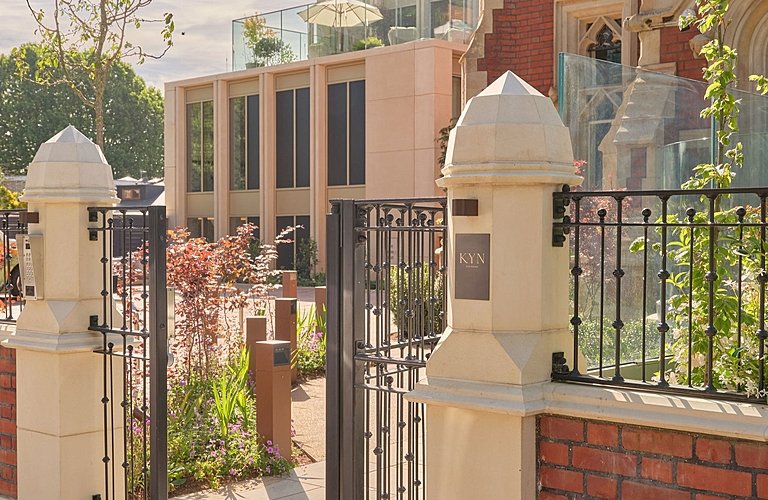192 Sloane Street, London SW1X 9QX

What Does the CQC Do?
If you are looking into care homes for older adults, you may have heard of the Care Quality Commission, or CQC. This independent regulatory body plays a pivotal role in regulating, maintaining and enhancing the quality of health and social care services in England, including residential and nursing homes.
But what, exactly, does the CQC do? In this blog post, we will unravel the crucial workings of the CQC in healthcare regulation, delving into its roles, standards and inspection processes in care homes in England. We’ll explore exactly how the CQC ensures that the care delivered meets the standards of quality, safety, and dignity that every individual deserves.
What Is the CQC?
The term CQC stands for the Care Quality Commission: a critical organisation regulating healthcare standards in the UK. This independent body holds a significant responsibility, overseeing the quality of various health and adult social care services in England.
These services span the broad healthcare spectrum, including (among others):
- GP surgeries
- Dentists
- Hospitals and NHS trusts
- Clinics
- Mental health services
- In-home care services
- Residential and nursing homes
The CQC is ultimately responsible for setting, monitoring and enforcing certain stringent standards of care. Their ultimate goal is to ensure that all care and health service providers in England maintain the safety, dignity, health and wellbeing of every resident or service user.
There are other organisations which are responsible for regulating care services in Scotland, Wales and Northern Ireland. These are the Care Inspectorate, the Welsh Care Inspectorate and the RQIA respectively.
The Role of the CQC in Care Homes
The CQC plays an instrumental part in health care compliance, ensuring that care homes provide the highest standards of care to their residents. Here are some of the main ways in which the CQC regulates care homes in England.
Registering Care Homes
Before a care home can operate, it must first be registered with the CQC. The registration process involves stringent checks to ensure that the care home is fit for purpose and can meet the fundamental standards of care that the CQC sets.
Carrying Out Inspections
The CQC regularly inspects care homes to assess their performance against the required standards. These inspections can be both scheduled and responsive to specific concerns. During an inspection, the CQC assesses the residence according to five key care home standards:
- Quality of care
- Safety
- Effectiveness
- Leadership
- Responsiveness to people’s needs
These standards are based on the Health and Social Care Act 2008 (Regulated Activities) Regulations 2014.
Publishing Ratings and Reports
Following each care home inspection, the CQC publishes an accessible report summarising their findings. This publicly available report includes a rating for the care home, which can range from 'Outstanding' to 'Inadequate'. CQC inspection reports offer transparency to residents, families, and the care home itself, highlighting areas of excellence and areas that need improvement.
Safeguarding Care Home Residents
A key role of the CQC in health service improvement is protecting the interests and rights of care home residents. This includes ensuring they are treated with dignity, respect, and have their privacy safeguarded. If a care home is found to be breaching these rights by the CQC, enforcement action can be taken, from fines to revoking their CQC registration.
Listening to Feedback and Concerns
The CQC will utilise feedback received from care home residents, their families, staff, related health professionals and the general public. If issues are raised about a care home's safety and care practices, the CQC can conduct an investigation in response to this. Where necessary, they will take action to ensure the issues are rectified and the standards of care are upheld.
The Inspection Process by the CQC
The CQC routinely carries out scheduled inspections to assess how well care homes are performing against the standards. These inspections can be comprehensive, covering all aspects of care, or focused on a particular area of concern.
In addition to scheduled inspections, the CQC can also carry out responsive inspections if they receive information suggesting that a care home might not be meeting the required standards. These inspections can occur at any time and are typically unannounced.
Following an inspection, the CQC issues a report that includes an overview of their findings along with a care home rating. This gives residents, families and care homes themselves a clear indication of the quality of care being provided. You can learn more about understanding CQC ratings here.
The Impact of the CQC on Care Homes
The CQC's role in monitoring and regulating care homes has a significant impact on the quality of care residents receive. By setting clear expectations for care homes and holding them accountable, the CQC helps drive improvements in care. Care homes that fail to meet the standards are required to make changes to bring their services up to par.
Knowing that a care home is regulated by the CQC supports residents and their families having peace of mind that the care they receive is of an acceptable standard. The transparency provided by the CQC's inspection reports and ratings also helps people make informed decisions about which care home to choose. You can use the CQC website to search for care homes in your area and see their latest inspection ratings.
Discover KYN Luxury Care Homes
At KYN, our aim is to provide the highest standards of residential, nursing and dementia care for older adults. We get to know each resident as a unique individual, offering holistic care tailored to their unique needs and wishes.
We designed our care homes to be relaxing, engaging spaces where we ourselves would wish to live. As well as outstanding care, KYN residents enjoy fine dining and a varied programme of organised activities, from social clubs to cultural events and outings.
To request a KYN brochure, enquire today. Fill in our online form, call us on +44 (0) 20 3535 1923 or email enquiries@kyn.co.uk.